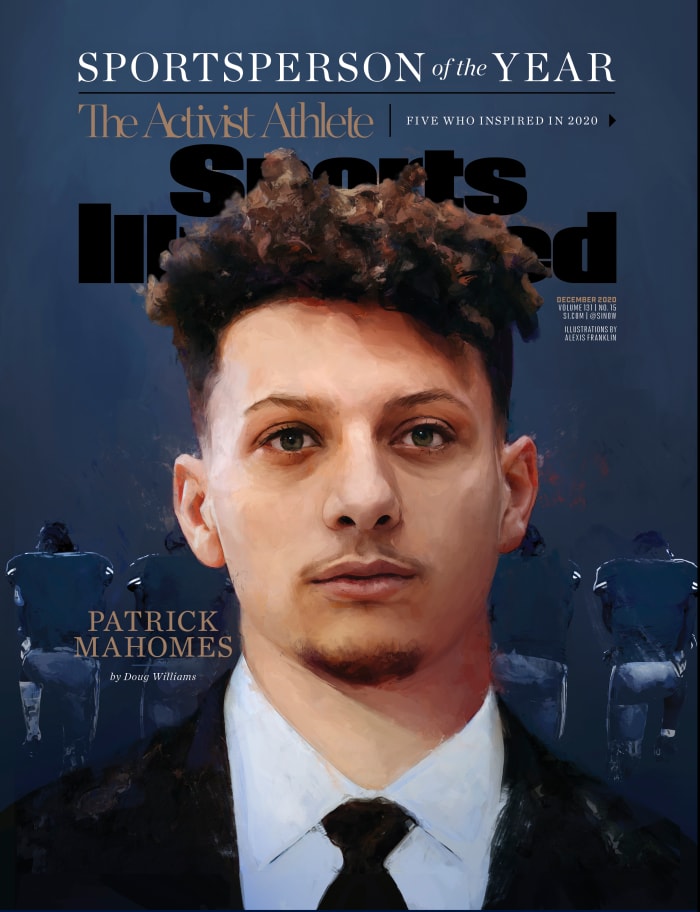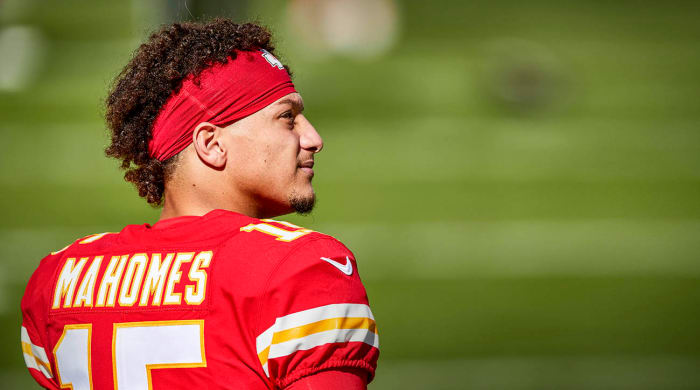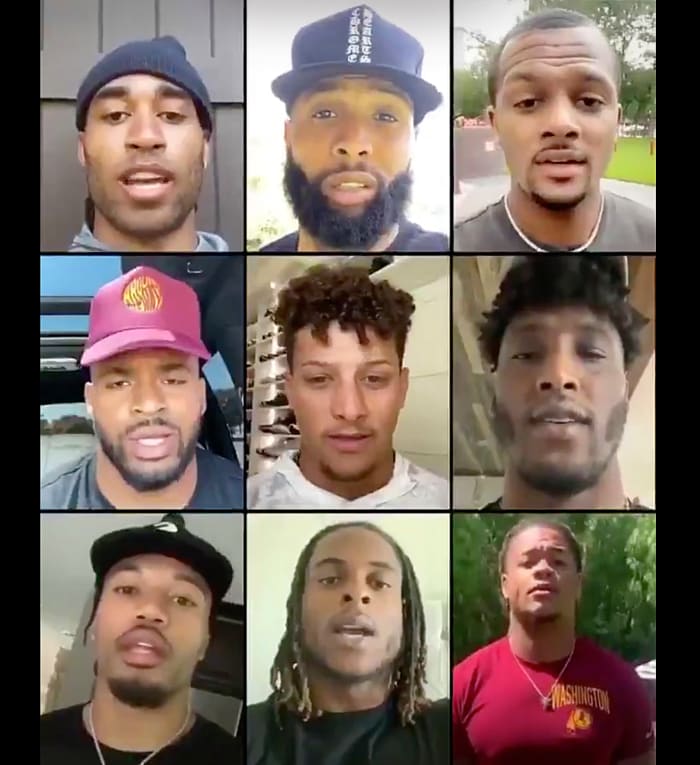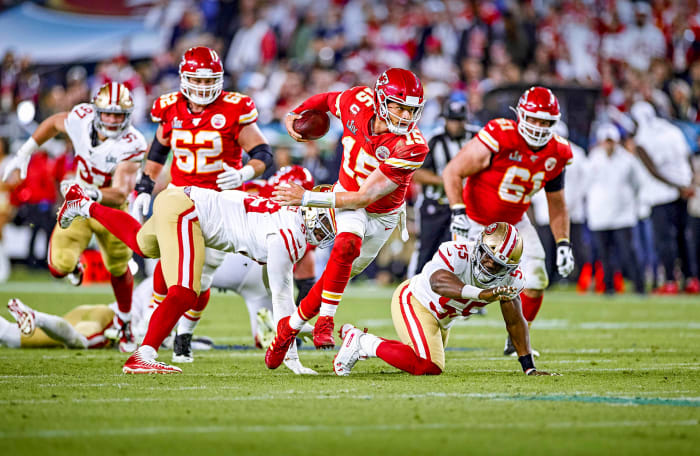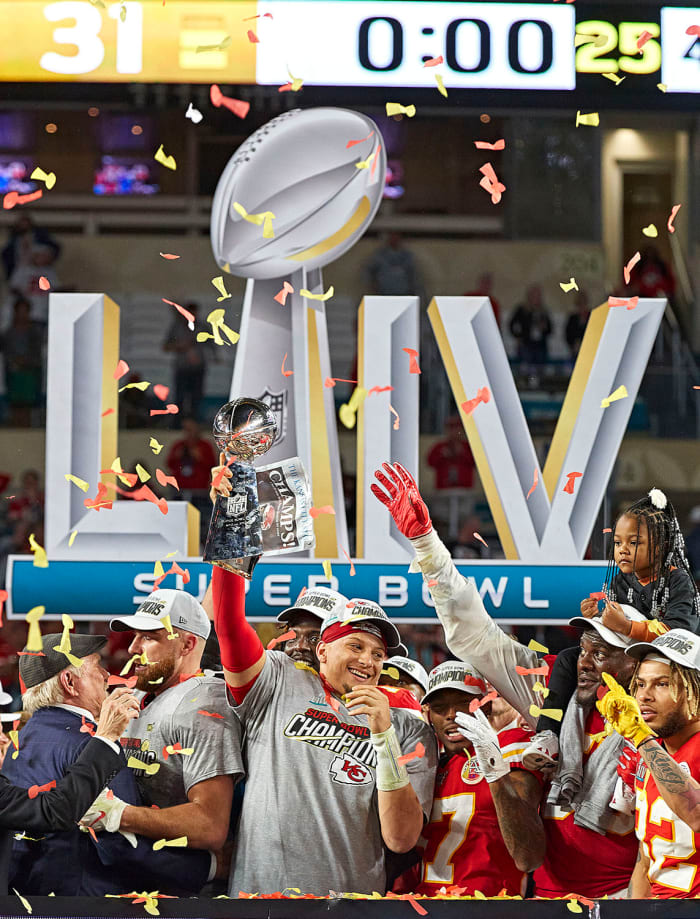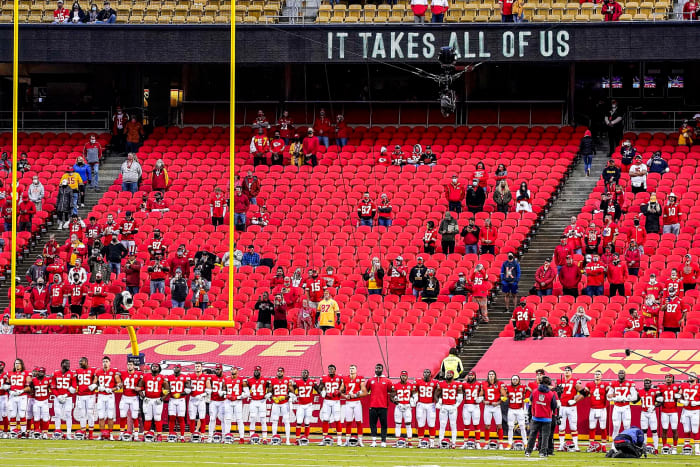I was at home when I saw the video on TV: NFL stars, one after another, calling out the names of victims of police brutality and proclaiming that “Black Lives Matter.
A lot of great players voiced their support. But the one who stood out most, the one who made me say “Wow,” was Patrick Mahomes.
He is the best player in the NFL, the reigning Super Bowl MVP, the owner of the biggest contract in sports history. He is also a young Black man who understands the impact he can have on society. When players started putting that video together, he didn’t worry about his product endorsements. He didn’t sit back and say, “No, I’m not gonna do that—that’s gonna tarnish my reputation.” It wasn’t about his reputation. It’s about social justice to him. It’s about what’s right. It’s about the way things should be.
He said, “This is who I am. And I’m not so worried about what you say.” When I saw him on that video, I knew it wasn’t going to just disappear from the news cycle in a few hours. It was permanent.
That video has caused a real change in the NFL. Commissioner Roger Goodell has publicly acknowledged that trying to squash player protests in recent years was wrong, and the league should have done a better job of listening to its Black players. As the best player in the NFL, Mahomes has the loudest voice. He forced people to listen.
I met Patrick once, briefly, at the 2017 NFL combine. I could tell by his reaction that he not only knew who I was, but also understood the significance of what I had done: At the end of the 1987 season, I became the first Black quarterback to start a Super Bowl, and I was named the game’s MVP. For a lot of young guys in this league, history does not matter to them. They might know what I did, but they don’t particularly care. Patrick cared.
I always tell players, “Don’t ask what football can do for you, but what you can do for football.” Patrick is a great example of that. You can tell he loves the game—he has more fun than anybody I’ve ever seen—but he doesn’t play for selfish reasons. It isn’t about him. It’s about the organization, the community. He is the best player in the league, but he heaps praise on everybody around him. He takes that attitude with him everywhere.
That video helped change how the NFL views the social justice movement. This fall, his 15 and the Mahomies Foundation split the cost of new voting machines in Kansas City with the Chiefs. He understands the issue of voter suppression in America. He wanted to make sure that people had an opportunity for a fair election—that whoever you support, you just get the chance to vote.
Mahomes’s foundation was also a presenting sponsor this summer for the Black College Football Hall of Fame’s “Road to Equality” event. That really touched me because Mahomes didn’t go to a Black college. But I did.
In 1978 the Buccaneers drafted me out of Grambling State. It was really unusual to see Black QBs in the NFL at that time. A lot of racist stereotypes drove NFL decision-making. After my first game my rookie year, a reporter asked me what was going through my mind during the national anthem. I told him the truth: I was counting the number of Black coaches on the other sideline. At Grambling, I was used to having all-Black coaching staffs—for my team and for our opponents. In the NFL, there just weren’t many Black coaches.
The next day, our coach, John McKay, called me into his office, where Tampa Tribune sports editor Tom McEwen was waiting. McEwen told me that I shouldn’t make statements like that to the press. That was the NFL I knew. It was a different time. When I was the starting quarterback for the Bucs, I was the 54th-highest-paid QB in the league. My backup, Mike Rae, got paid more than I did. If you were Black and wanted to play quarterback, you had to fall in line—and even then you might not get a chance. Warren Moon, a star at Washington who won Rose Bowl MVP, came out the same year I did and didn’t even get drafted—and the draft was 12 rounds back then. Warren had to play in Canada for five years before joining the NFL. He is in the Pro Football Hall of Fame now.
When I made it to the Super Bowl, I was famously asked how long I had been a Black quarterback. There has been a lot of discussion about that question—I think the reporter just stumbled over his words—but the greater point is this: I felt like everybody saw me as Black quarterback instead of just a quarterback. When I left Grambling, that story line followed me wherever I went.
Well, times change. The decision-makers now are more open-minded. The environment is there for players like Mahomes to show how good they are—but really, there aren’t other players like Ma-homes. I have heard people say he is the best player in league history. I think the assessment is fair, to a point: He is the best ever at this stage of his career. My college coach, the legendary Eddie Robinson, used to say, “They always talk about how great a coach I am. Hell, I have coach-makers.” He meant that great players made him look good. Patrick Mahomes is the ultimate coach-maker.
As great as he is on the field, I am just as impressed with him off it. You can name anybody a captain, but players know who the real leaders are.
Patrick can go to the ’hood, he can go to the city, and he can go to the government. I think he can handle himself in any environment.
We are entering a new era of quarterback play. Peyton Manning is retired. Tom Brady and Drew Brees are in their 40s. Aaron Rodgers is 37. On the opening weekend of this season, 10 of the 32 starting quarterbacks were Black. Of the star Black quarterbacks in the league, the oldest one is Russell Wilson, who is only 32. No Black quarterback will ever feel the way I did when I played.
The opening game of this season—the one the league selected to showcase—was Chiefs-Texans. Mahomes faced Deshaun Watson. They are both Black quarterbacks. They are also the two highest-paid QBs in the league. I got chills watching it.
Patrick Mahomes benefits from the progress of previous generations. What I love is that he knows it and doesn’t take it for granted. He wants to use his platform in ways we were not allowed to. He wants to comfort those who need it, to lend a voice to the voiceless, to make the country better. He is the highest-paid player in the league because he is the best. He speaks his mind because he can, and because he knows the value of his words and actions. He is lucky he has the opportunities he has. We are all lucky he takes advantage of them.

